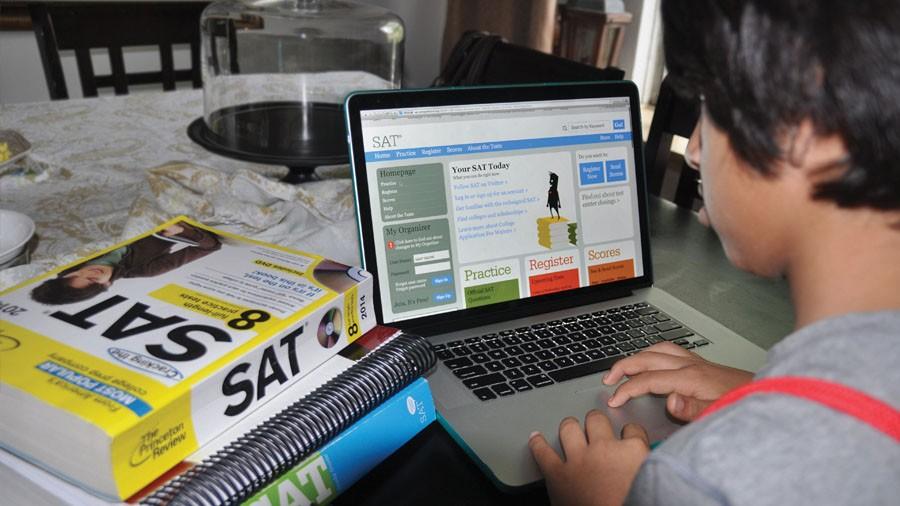SAT changing ASAP
Scoring for SAT changing in 2016
Students across the nation have many resources available to them when preparing to take the SAT, such as SAT prep classes, books and College Board.
For the first time in 10 years, the SAT will undergo some big changes. Some of the major changes to the test include an optional essay, brand new scoring and more affordable methods to prepare for the exam. College Board members have reconstructed the exam in hopes of making the test more relevant to the high school curriculum. The test is expected to be administered in the spring of 2016 and will affect students in the class of 2017 or later.
The exam will shift from its current score scale of 2400 to the original score scale of 1600 . Students will be given two scores , one in evidence-based reading and writing, and one in math. Both scores will be reported on a 200 to 800 point scale. The scale change is to ensure that students will not be penalized for choosing a wrong answer on the test. The SAT will now require evidence-based answers on the reading and writing sections of the test.
“No longer will it be good enough to focus on tricks and trying to eliminate answer choices,” College Board President David Coleman said. “We are not interested in students just picking an answer, but justifying their answers.”
Board members plan to have test questions that require deeper thought and are relevant to real world problems. The reading and writing portions of the test will require students to cite the evidence for their answer choices, and will include reading passages of broader topics, including science, history, social studies and literature.
“This creates more opportunities for students, rather than obstructing them with test questions that are detached from the education and preparation collages need,” Coleman said.
Not only board members feel that this will be a good change to the test.
“Judging by their overall idea, I think the changes would be good because the questions will be more centered on the school’s curriculum,” junior David Li said. In addition to the new citing requirements, the essay portion of the exam will now be optional.
Making the essay optional enables colleges to be more flexible about using the essay as a requirement.
Although the essay is optional, it is highly recommended for students to write the essay in the case that a college does decide to require the essay in their admission process. Deciding to write the essay will provide students with key values that will help them throughout their college years.
“The essay has been re-imagined to closely reflect on the analytical writing that will be required of students in college,” Coleman said.
The emphasis on the use of evidence gives the format of the essay a unique way of assessing a student’s writing and analytical thinking. Essays will be evaluated on students understanding of the prompt, analysis of the author’s use of evidence and reasoning, clear writing and use of language. The reading and writing portions of the test are not the only sections that will be changed. The math section will also undergo new changes. The math section of the exam will no longer allow calculators to be used on every portion of the test. The problems will focus on data analysis and real world problem solving, algebra and other advanced math concepts.
“These are areas that will most prepare students for college and their careers,” said Coleman.
The Board has also looked into more affordable ways to study for the modified exam. College Board has teamed up with the Khan Academy to develop a helpful and more affordable resource for test takers. The new resource is meant to make learning more transparent. The program will focus on solving actual problems rather than learning sneaky tricks to guess the right answer. Khan Academy will help students learn at their correct skill level.
“Its going to meet students where they are,” Salman Khan, founder of the Khan Academy, said. “We will take you as far back as you need to go or as far forward as you need to go.”
Khan has decided to challenge the existing test prep industry by offering high quality, affordable tools. Some Khan tools will be released in hopes of helping students study prior to the SAT’s debut in 2016.
“We hope you breathe a sigh of relief that this exam will be focused, useful, open, clear, and aligned with the work you will do throughout high school,” Coleman said.








